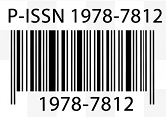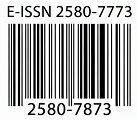PERSPEKTIF TAFSIR MAQASHIDI IBNU ASYUR TERHADAP KEPEMIMPINAN PEREMPUAN DALAM POLITIK
Abstract
Women's leadership in the political realm in the Islamic community is often an issue and even a problem phenomenon that seems difficult to resolve. The existence of pros and cons related to the opinion of women's leadership in the political sphere also affects discussions and issues of public space for Muslims. It is not surprising then that many thinkers of Islamic studies have provided opinions or views related to women's leadership in the political realm, including in this case Ibn Asyur. Ibn Asyur has his own views related to women's leadership in the political realm. Ibn Asyur's thought was not born just like that but was born through the methodology and construction of thought from various aspects. This article discusses related to (1) how is the leadership of women in politics according to Ibn Asyur's thought? and (2) how is the analysis of Ibn Asyur's method in the thinking of women's leadership in the political sphere? The research objectives in this article are (1) to describe women's leadership in politics according to Ibn Asyur's thought; and (2) analyzing Ibn Asyur's method of thinking about women's leadership in the political realm. The conclusion of this research is that in the context of political leadership, women are placed according to their nature. Women may be involved in political matters has limitations. Considering that by nature, women cannot be equated with men, especially in physical terms.
References
’Asyur, M. al-T. I. Tafsir al-Tahrir wa al-tanwir. Dar al-Tunnisiyah li al-Nasyr, (n.d.).
’Asyur, M. al-T. I. Maqasid -al-Syari’ah al-Islamiyyah. dae a Nafais, (2001).
Asrowi. "Ijma dan Qiyas dalam Hukum Islam," Jurnal Aksioma Al-Musaqoh, 1, no.1, (2018).
Basri, H. "Kepemimpinan Politik Perempuan Dalam Pemikiran Mufassir," 7, no. 1 (2018): 51–66.
Dzuhayatin, S. R. "Gender Glass Ceiling in Indonesia: Manifestation, Roots and Theological Breakthrough." Jurnal Al-Jami’ah 58, no. 1 (2020): 209–240.
Fuad, A. M. "Qiyas Sebagai Salah Satu Metode Istinbāṭ al-Ḥukm," Jurnal Mazahib 15, no. 1 (2016).
Garadian, E. A. "In the Foot Step of Consolidating Ummah: Highlights from the 7th Indonesian Muslim Congress," Jurnal Studia Islamika 27, no. 1 (2020).
Hardani, Auliya, N. H., Andriani, H., Fardani, R. A., Ustiawaty, J., Utami, E. F., Sukmana, D. J., & Istiqomah, R. R. Metode Penelitian Kualitatif & Kuantitatif (Issue March). Penerbit Pustaka Ilmu, 2020.
Huda, N. "Metodologi Fatwa Maqashidi Ibnu Asyur." At-Tuhfah: Jurnal Studi Keislaman, (2015).
Ibrahim, A. R. "The apprehensions of traditional ulama towards women’s participation in politics in Nigeria," Jurnal Al-Jami’ah 52, no. 2 (2014)
Jafar, T. M., & Fitria, A. "Understanding Multiple Interpretations on the Hadith that Husbands Allow Wives to have Outdoor Activities: A Study of Islamic Law Perspectives," Samarah: Jurnal Hukum Keluarga Dan Hukum Islam 5, no. 1 (2021).
Kumar, P. "Participation of Women in Politics : Worldwide experience," IOSR Journal Of Humanities And Social Science (IOSR-JHSS) 22, no. 12 (2017): 77–88.
Kusmana. "Modern Discourse of Woman’s Ideal Role in Indonesia Tafsir Al-Qur’an of Ibu and Female Agency," Journal of Indonesian Islam 9, no. 1 (2015): 25–58.
Kusuma, W. H. "Epistemologi Bayani , Irfani dan Burhani Al-Jabiri dan Relevansinya Bagi Studi Agama untuk Resolusi Konflik dan Peacebuilding," Jurnal Syi’ar 18, no. 1 (2018).
Mubarak, H. Intersections: Modernity, Gender, And Qur’anic Exegesis [Georgetown University]. 2014. https://repository.library.georgetown.edu/bitstream/handle/10822/712424/Mubarak_georgetown_0076D_12739.pdf?sequence=1
Mukhlishin, A., Suhendri, A., & Dimyati, M. "Metode Penetapan Hukum Dalam Berfatwa," Al-Istinbath: Jurnal Hukum Islam 3, no. 2 (2018): 167–184.
Nikmah, L. "Penafsiran Tahir Ibn ’Asyur terhadap Ayat-ayat Tentang Demokrasi: Kajian Atas Tafsir Al-Tahrir Wa Al-Tanwir," Journal of Islamic Studies and Humanities 2, no, 1 (2017).
Rosyadi, I. "Tarjih Sebagai Metode: Perspektif Usul Fiqh," Jurnal Ishraqi 1, no. 1 (2017).
Sya’bani, A. "Maqasid al-Syari’ah," El-Hikam: Journal of Education and Religious Studies VIII, no. 1 (2015)
Syamsiyatun, S. "Muslim Women’s Politics in Advancing Their Gender Interests: A Case-Study of Nasyiatul Aisyiyah in Indonesia New Order Era," Al-Jami’ah: Journal of Islamic Studies 45, no. 1 (2007): 57–89.
Wani, G. Q. "Islamic Perspectives on Human Nature : Ibn ’Āsyūr’s Fitrah - Based Theory of Maqāsid Al-Sharī’ah," Islam and Civilisational Renewal 8, no. 2 (2007).
Zaelani, A. Q. "Konsep Ta’aqquli dan Ta’abbudi dalam Konteks Hukum Keluarga Islam," Jurnal Asas 6, no. 1 (2014).



_(1)1.png)















